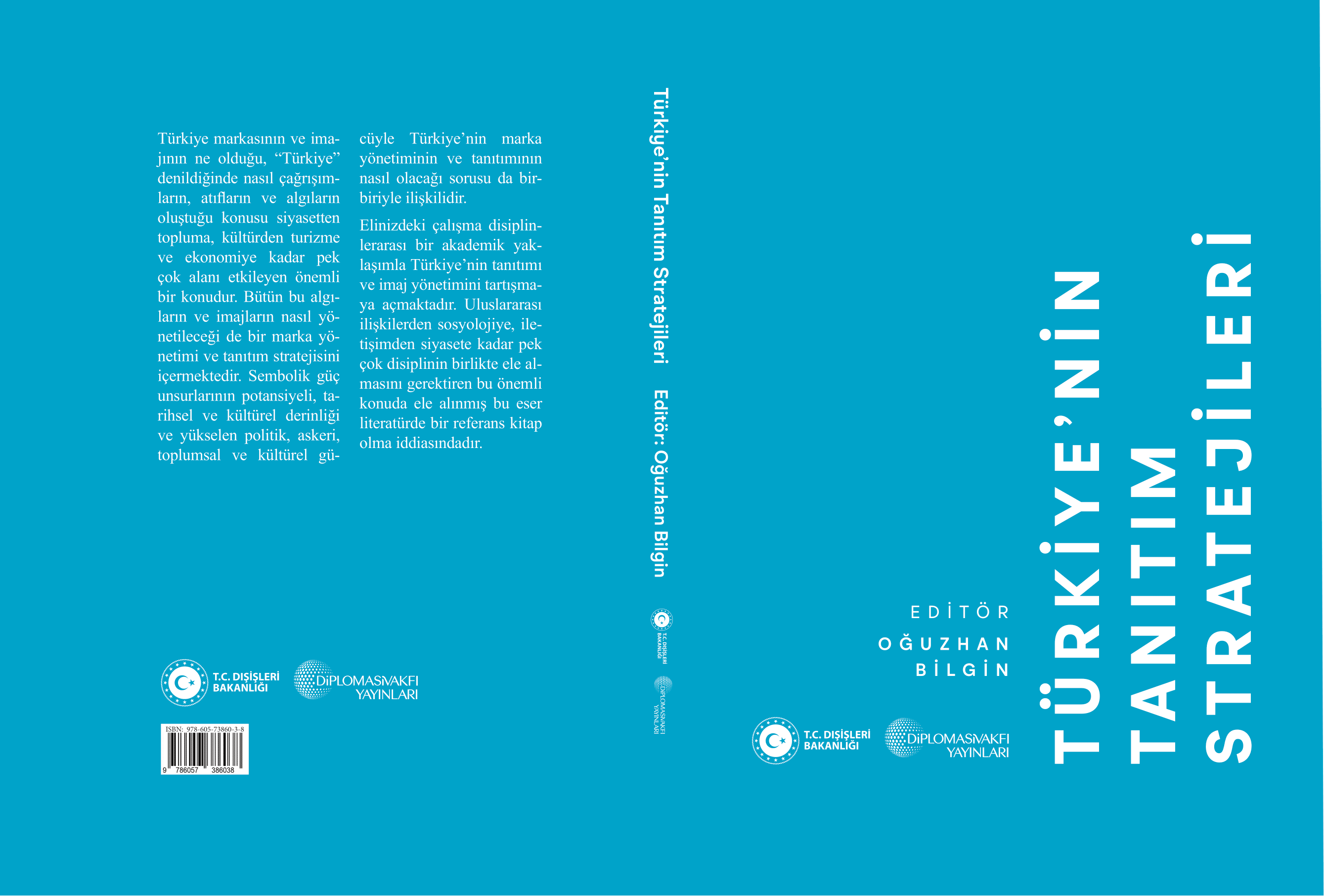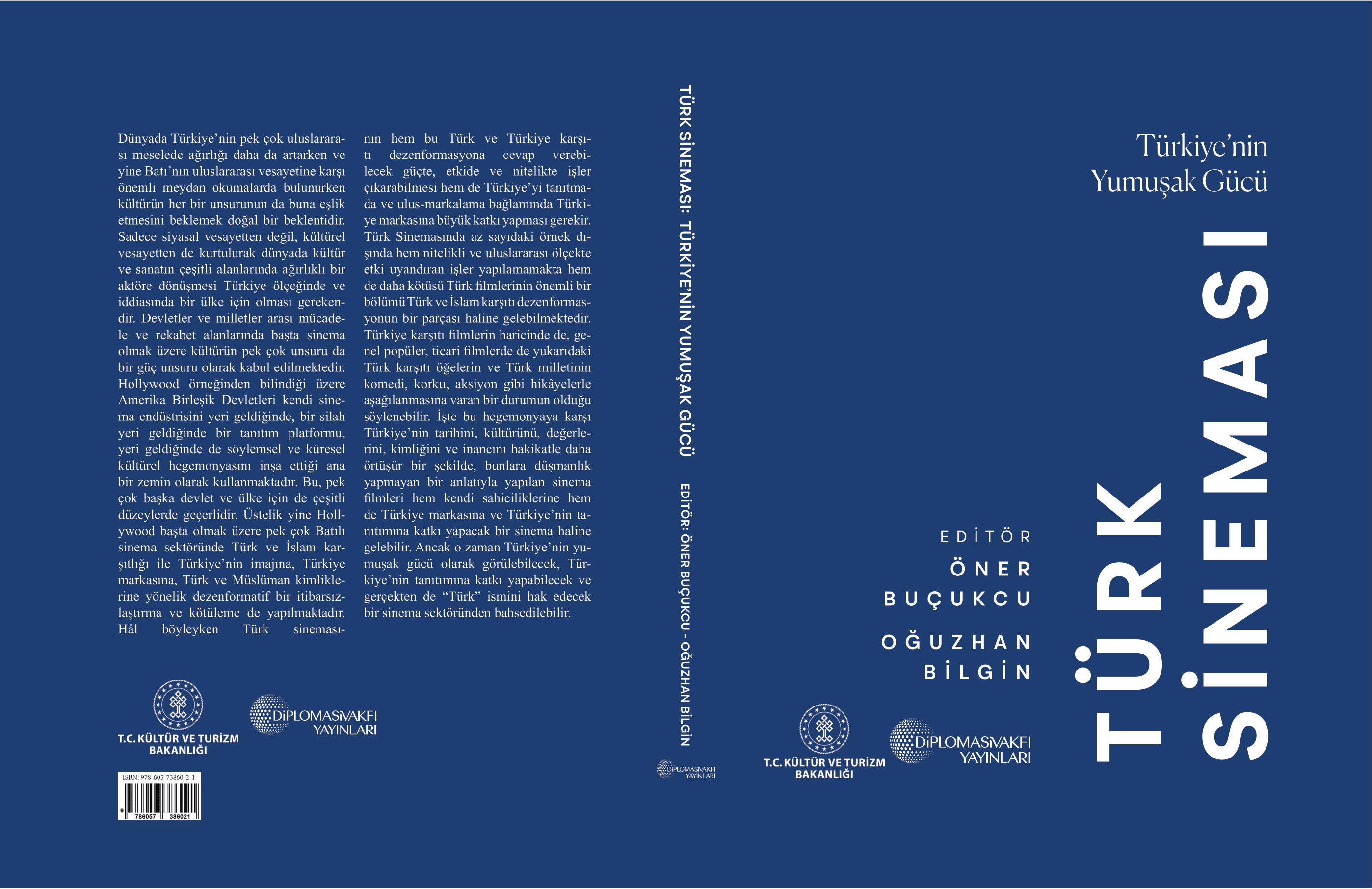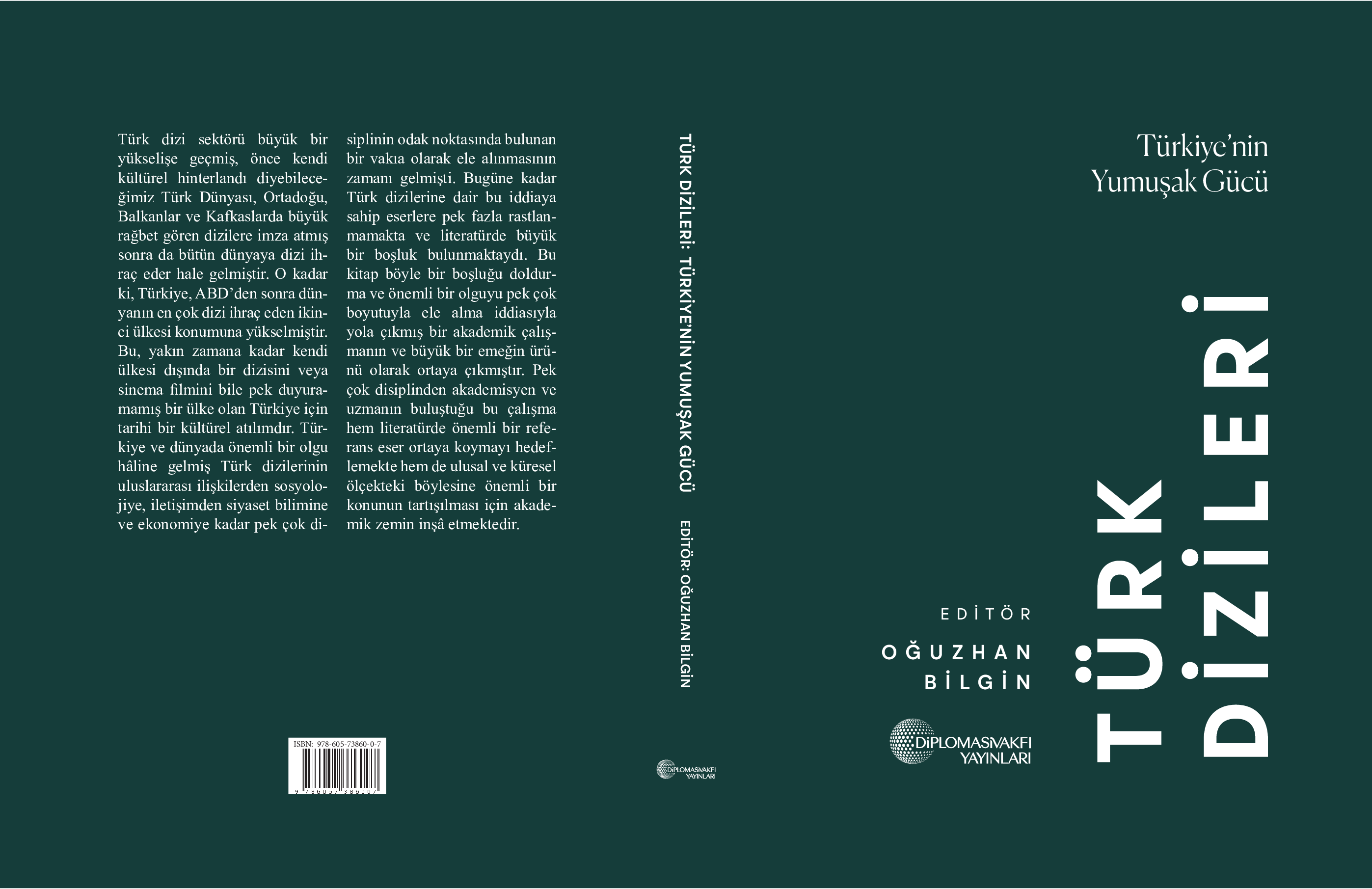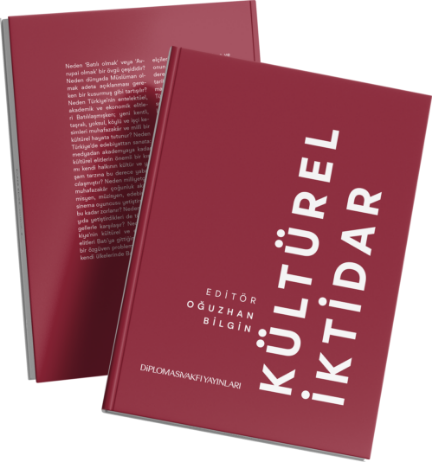Publications of Diplomacy Foundation

Türkiye's Promotion Strategies
The issue of what the brand and image of Türkiye is, and what kind of associations, references and perceptions are formed when the word "Türkiye" is mentioned, is an important issue that affects many areas from politics to society, from culture to tourism and economy. How to manage all these perceptions and images also includes a brand management and promotion strategy. With the potential, historical and cultural depth of symbolic power elements and rising political, military, social and cultural power, the question of how Türkiye's brand management and promotion will be is also related to each other. The present study opens up the discussion of Türkiye's promotion and image management with an interdisciplinary academic approach. This work, which is discussed on this important subject that requires many disciplines from international relations to sociology, from communication to politics, claims to be a reference book in the literature.

Turkish Cinema: Türkiye’s Soft Power
While Türkiye’s weight in many international issues in the world is increasing and it is again making significant challenges to the international tutelage of the West, it is a possible expectation to expect that every element of culture will accompany this. It is necessary for a country of Türkiye’s scale and claim to become a dominant actor in various fields of culture and art in the world by getting rid of not only political tutelage but also cultural tutelage. In the fields of struggle and competition between states and nations, many elements of culture, especially cinema, are also accepted as an element of migration. As it is known from the example of Hollywood, the United States of America uses its own cinema industry as a weapon, as a promotional platform, and as a main ground on which it builds its discursive and global cultural hegemony when necessary. This is also disinformation discrediting and denigration of Türkiye’s image, Turkish brand, Turkish and Muslim identities with andi-Turkish and anti-Islam sentiment in various Western cinema sectors for many other states and countries. In this case, Turkish cinema should be able to produce works with the power, impact and quality to respond to this anti-Turkish and anti- Türkiye disinformation, and it should make a great contribution to the Turkish brand in promoting Türkiye and the context of nation-branding. Except for a few examples, Turkish cinema cannot produce works that are of high quality and have an impact on an international scale, and worse, a significant part of Turkish films can become a part of anti-Turkish and anti-Islamic disinformation. Apart from anti-Türkiye films, it can be said that there is a situation in general popular and commercial films that lead to the above anti-Turkish elements and the humiliation of the Turkish nation with stories such as comedy, horror and action. Against this hegemony, cinema films made with a narrative that is more in line with the truth and does not hostile Türkiye's history, culture, values, identity and beliefs can become a cinema that will contribute to both their own authenticity and the Turkish brand and the promotion of Türkiye. Only then can we talk about a cinema industry that can be seen as Türkiye's soft power, contribute to the promotion of Türkiye, and indeed deserve the name "Turkish".

Türkiye’s Soft Power: Turkish Series
The Turkish series industry has experienced significant growth, not only by producing series in high demand within the Turkish World, Middle East, Balkans, and Caucasus, which can be considered its own cultural hinterland, but also by becoming a global exporter of TV series. In so much that Türkiye has become the world’s second largest TV series exporter after the US. This is a great historic and cultural breakthrough for Türkiye, a country that previously struggled to promote its own series and movies outside its borders.
It is now time to consider to Turkish series as a fact, which have an important phenomenon in both Türkiye and the world, they hold focal position in various disciplines, ranging from sociology to international relations, from political science to the economy.
Until now, there have been limited studies focusing on Turkish series, which was leading to a big gap in the literature. This work was born as a product of an academic study that to fill such gaps and to handle with an important phenomena in a multidimensional way. This study, which brings together academicians and experts from many disciplines, target to present an important reference work in the literature and also builds an academic field for the discussion of such an important issue on a national and global scale.

Cultural Power
Why is 'to be Western' or 'to be European' a form of praise? Why is being a Muslim in the world treated as if it is a flaw that needs to be justified? Why do the emerging urban, rural, impoverished, and worker segments in Turkey cling to a conservative and traditional cultural life while the intellectual, academic, and economic elites are Westernized? Why is a significant percentage of Turkey's cultural elite, from literature to the arts, from the media to academics, so alienated from the traditions and way of life of their own people? Why is it so difficult for the nationalist and conservative majority to raise scholars, singers, writers, and actors? Why do the few who have flourished encounter so many challenges? Why do Turkey's cultural and economic elites struggle with their self-confidence significantly when they travel to the West, but when they are at home, they represent the West's culture and ideals with excessive condescension? Why hasn't Turkey, as a country that prides itself on never being colonized in its history couldn't make its cultural life independent and democratic? Why are positive situations about Turks and Muslims discredited; negativities are exaggerated and thought to be experienced only in Turkey? Why do conservative nationalist segments have a huge self-confidence problem?
In these and similar discussions, antagonistic language and tone were typically unavoidable due to the incompatibility of the subjects at issue and their distance from academic sensibility.
With the idea that it is time for these talks to find an academic foundation, the book you are holding claims to be an intellectual intervention.